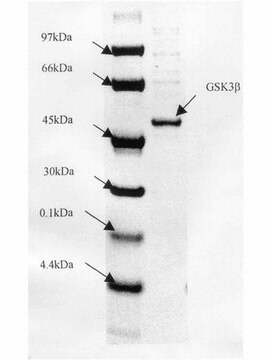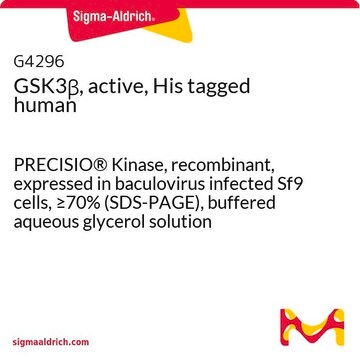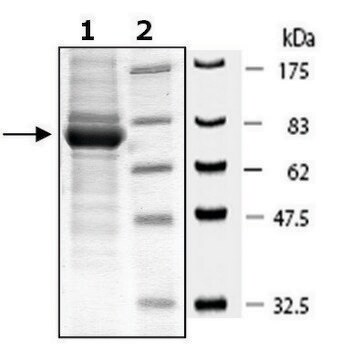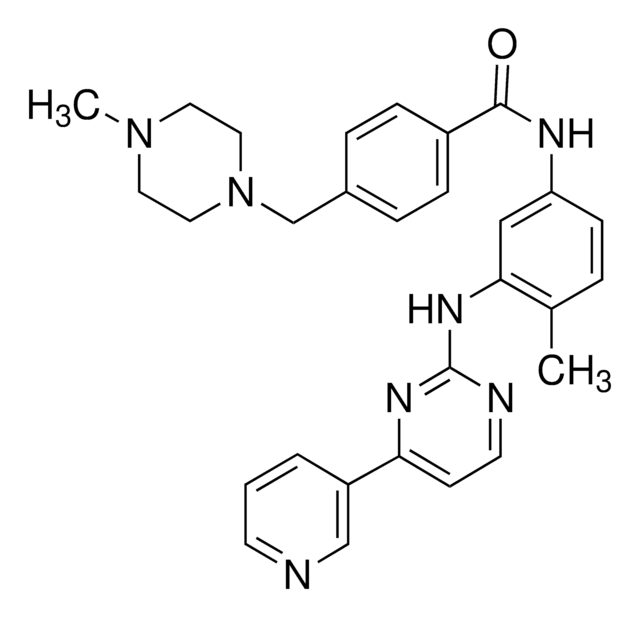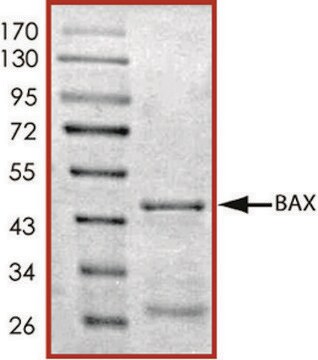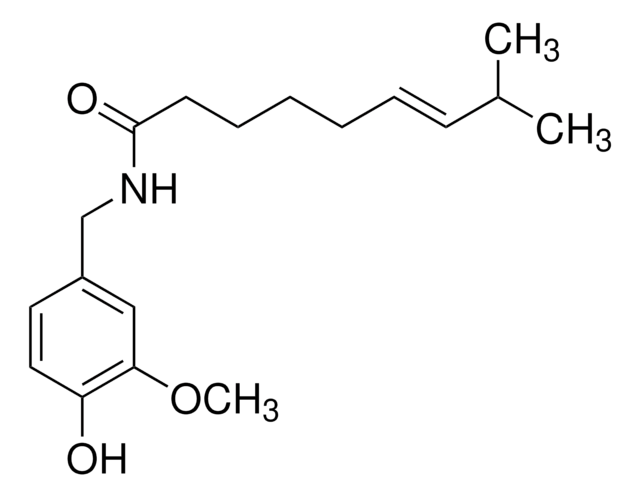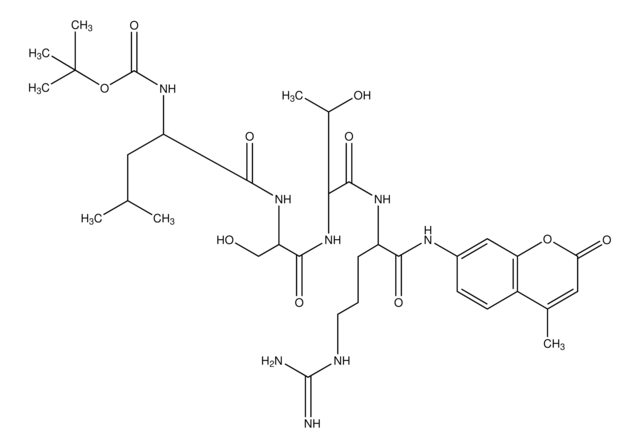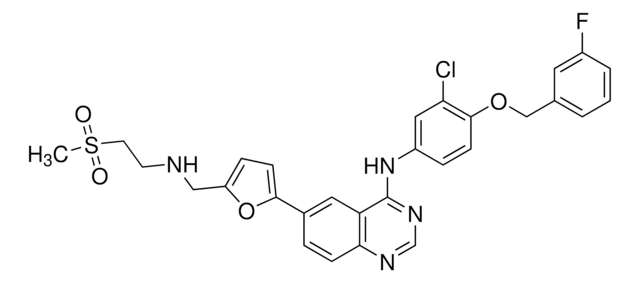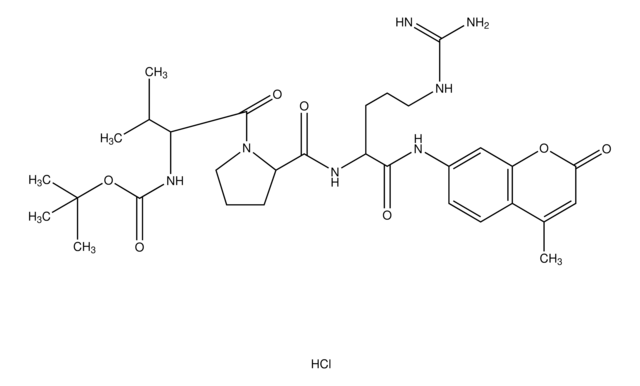SRP0356
GSK3β active human
recombinant, expressed in baculovirus infected Sf9 cells, ≥80% (SDS-PAGE)
Sinonimo/i:
glycogen synthase kinase 3 beta
About This Item
Prodotti consigliati
Origine biologica
human
Ricombinante
expressed in baculovirus infected Sf9 cells
Saggio
≥80% (SDS-PAGE)
Stato
aqueous solution
Attività specifica
≥500 pmol/min-μg
PM
73 kDa
Confezionamento
pkg of 10 μg
tecniche
activity assay: suitable
inhibition assay: suitable
N° accesso NCBI
N° accesso UniProt
Condizioni di spedizione
dry ice
Temperatura di conservazione
−70°C
Informazioni sul gene
human ... GSK3B(2932)
Descrizione generale
Applicazioni
Azioni biochim/fisiol
Codice della classe di stoccaggio
12 - Non Combustible Liquids
Classe di pericolosità dell'acqua (WGK)
WGK 1
Punto d’infiammabilità (°F)
Not applicable
Punto d’infiammabilità (°C)
Not applicable
Scegli una delle versioni più recenti:
Certificati d'analisi (COA)
Non trovi la versione di tuo interesse?
Se hai bisogno di una versione specifica, puoi cercare il certificato tramite il numero di lotto.
Possiedi già questo prodotto?
I documenti relativi ai prodotti acquistati recentemente sono disponibili nell’Archivio dei documenti.
Il team dei nostri ricercatori vanta grande esperienza in tutte le aree della ricerca quali Life Science, scienza dei materiali, sintesi chimica, cromatografia, discipline analitiche, ecc..
Contatta l'Assistenza Tecnica.